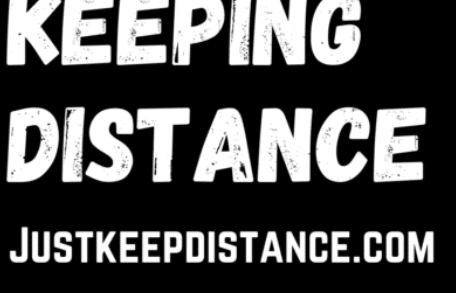Your cart is currently empty!

Some Negative Effects of Oversleeping
Evaluating the Negative Effects of Oversleeping
You need sleep to prevent heart problems and depression and increase your concentration and productivity. But while everyone talks about the dangers of insufficient sleep, people rarely mention how oversleeping affects you. Besides harming your health, sleeping too much could signal underlying conditions. While it’s fine to sleep in once in a while, you need to evaluate your rest patterns if you regularly wake up tired despite sleeping beyond nine hours and your room with the same old layout which is a mess. Although sleep requirements vary with age, genetics, and daytime activities, the average adult should only rest for 7-9 hours each night. Here are some negative effects of oversleeping.
Depression
Though most depressed individuals experience insomnia, oversleeping appears in around 15% of depression patients. This is especially true for atypical depression. People with this type of depression respond to positive events with an increase in mood, appetite, and sleep duration. However, these symptoms are short-lived and don’t cure the underlying depression. There are several reasons why depression patients oversleep. For starters, some people use sleep as an escape from their problems. Since they have lost hope, patients don’t see the point of starting the day early or in high spirits.
Oversleeping could also indicate existing sleep disorders. It’s not uncommon for depression patients to suffer from sleep apnea, a disease characterized by breathing interruptions during naptime. Because their rest is non-restorative, depressed patients often sleep longer to catch up. Depressed people might also oversleep because of disrupted circadian rhythms. Since they can’t fall asleep during regular rest hours, individuals will extend their sleep into the late morning and early afternoon.
Reduced Cognitive Function
Impaired cognition is one of the negative effects of oversleeping. In a past study, individuals who slept 7-8 hours reported better cognitive abilities than their counterparts who slept for longer or shorter durations. Moreover, sleep impacted every adult equally, irrespective of age. Researchers discovered that sleep affected an individual’s verbal and reasoning abilities more than their short-term memory. The study, which brought together over 40,000 global participants, involved cognitive performance exercises and online questionnaires.
A separate research exercise published by the JAGS also investigated the importance of sleep to your memory later in life. Participants revealed their sleeping patterns in 2000 and 1986. Additionally, the group of women took part in three interviews over a 6-year duration to talk about their thinking abilities and memory. Participants who rested for 7-8 hours every night performed better than those who slept five hours and below and nine hours and above.
Heart Diseases
Inadequate rest or sleeping excessively multiplies heart attack risks, even for non-smokers who work out and have no hereditary predisposition. This is according to a past study by the University of Colorado Boulder that attracted almost half a million participants. The study also discovered that sleeping 6-9 hours minimized heart attack risks by 18% for genetically predisposed participants. Compared to participants who slept 6-9 hours, individuals who slept below six hours were 20% more exposed to heart attacks. On the other hand, those whose sleep exceeded nine hours had a 34% greater chance of suffering a heart attack.
Separate findings suggest that sleeping beyond eight hours increased the risk of death and cardiovascular complications like stroke and heart failure by approximately 41%. Daytime napping also multiplied the threat of cardiovascular diseases among participants who slept beyond six hours every night compared to those who slept below six hours. That’s because daytime naps made up for insufficient rest among those who slept too little at night.
Obesity
Weight gain doesn’t only come from sleep deprivation; it’s also one of the side effects of oversleeping. Per Canadian research, individuals who exceeded nine hours of sleep time each night gained more weight in six years than average sleepers. Furthermore, sleeping over nine hours raised the possibility of being obese by approximately 21%, even with physical activity and a healthy diet.
Separate research also linked obesity to excessive daytime sleepiness. Weight gain projected who would experience daytime sleepiness. According to the study, dizziness and body mass index were independent of sleep duration. As such, obese individuals could be exhausted during the daytime irrespective of how long they slept at night. Obesity was also connected to sleep apnea. A typical sleep apnea symptom is daytime dizziness.
Inflammation
Some body parts redden, swell, and become painful when you have inflammation. Sleep disturbance, be it insomnia, extended sleep durations, or poor rest quality, increases IL-6 and CRP to invite diabetes, hypertension, and cardiovascular disorders. Elevated IL-6 and CRP levels signal inflammation. Several studies confirm inflammation as one of the negative effects of oversleeping.
For instance, one research that compared CRP levels to rest duration revealed elevated inflammatory markers among long sleepers. CRP levels surged in Caucasians sleeping below five hours and above nine hours, Asians sleeping above nine hours, African-Americans sleeping below five hours and above eight hours, and Hispanics sleeping over nine hours. Another research showed 44% more CRP among female long sleepers compared to their counterparts sleeping seven hours. Additional findings also confirmed CRP levels rose by 8% with every sleeping hour above the recommended 7-8 hours each night.
Preventing the Negative Effects of Oversleeping
Like other habits, oversleeping can be challenging to stop. However, you can stop oversleeping with some effort and consistency. The first step of preventing the side of oversleeping is creating a routine. You need to sleep at the same time if you want to wake up at the same time. For example, you can start bedtime rituals and avoid gadget use before naptime.
Additionally, avoid hitting snooze. By leaving the bed right away, you resist the urge to go back to bed, reducing your sleep hours. Another way to prevent the side effects of oversleeping is by avoiding daytime naps. Though you can sleep a little to boost your concentration, napping when you don’t need to disrupt circadian rhythms and leaves you more tired than before.
Conclusion And When The Effects of Oversleeping Require Further Attention
It’s time to see a doctor if you cannot stop oversleeping on your own. Maybe the negative effects of oversleeping are a result of an underlying condition. Have you experienced the side effects of oversleeping? Tell us how to sleep better in the comments. Don’t forget to follow our website for exciting posts like this.
